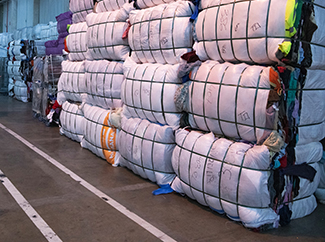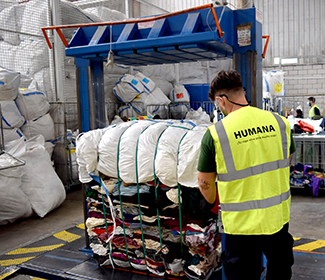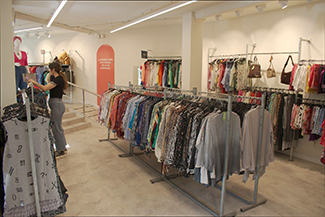consent_cookie
Duración: 1 year
Stores the user's cookie consent state
29-02-2024
Humana Fundación Pueblo para Pueblo welcomes with high expectations the proposed for a targeted revision of the Waste Framework Directive, which establishes the basic concepts of textile waste management in the European Union (EU). Our entity is fully committed to promoting and encouraging a more sustainable and circular use of textile products, therefore, it welcomes the legislative text that, among other measures, introduces the mandatory selective collection of textiles in all member countries from January 1, 2025.
Humana is one of the main players in the collection, classification and sale of second-hand clothing in Spain, with an annual average of 18,000 tons of clothing recovered, two classification centers and 52 second-hand stores. With the experience of 37 years of experience, the organization expresses its position regarding the European legislative proposal as follows:
Equal opportunities
Although at Humana we welcome the proposal, at the same time we regret the blurred distinction between "social enterprises" and the rest of the "social economy actors." Humana urges that all authorized textile waste operators, who are legally protected under the social economy framework, receive equal treatment from the administrations. Granting greater business opportunities to some actors in the social economy to the detriment of others is counterproductive and will hinder the objectives of the directive.
Extended Producer Responsibility (EPR)
We welcome that there can be harmonized extended producer responsibility (EPR) systems, promoting common standards and objectives across EU states leading to more effective collection, reuse and recycling of textiles in the EU internal market.
The RAP system must be designed to maximize the high reuse potential of the collected textiles, reflecting the difference of the used textile stream compared to other waste streams. This would offset the sorting and sales of non-reusable items if the forecast for an increase in selective collection is met, given that it will be mandatory in the EU from January 1, 2025.
We support RAP systems that involve relevant actors in the decision-making process. Authorized operators play a fundamental role, with a track record in which we have always guaranteed correct storage (dry, clean and contamination-free items) and have maximized the potential for reuse.
Classification criteria
The proposed directive suggests that the European Commission establish updated classification criteria for each export market. We consider this unrealistic, since the actual classification criteria of each market are constantly changing due to the evolution of demand.
Collection objectives
We regret that no collection or reuse targets have been set at EU level. We urge that they be set and reviewed every two years to increase total collection and maximize collection targets taking into account feasibility, technological advances and the improvement of European collection and sorting infrastructure. Reuse goals should take precedence over recycling goals, otherwise efforts to achieve these goals could be counterproductive.
Local and global context
At Humana, we believe that used textiles should be allowed to be sorted outside of the local context since the production and trade of textile products is global. As mandatory separate collection from 2025 will increase volumes of clothing collected in the EU, so must sorting capacity, both in the EU and beyond. Local sorting should be prioritized but collected items should also be allowed to be sorted abroad consistent with the Waste Shipment Regulation to facilitate the highest possible rate of reuse.
On our website we have a Position Papers section in which it is possible to find documents with which the entity assesses and analyzes the legislative and various types of advances that are being produced in the area of textile waste, as well as the trends and changes in the sector. of used clothing and second-hand fashion.


